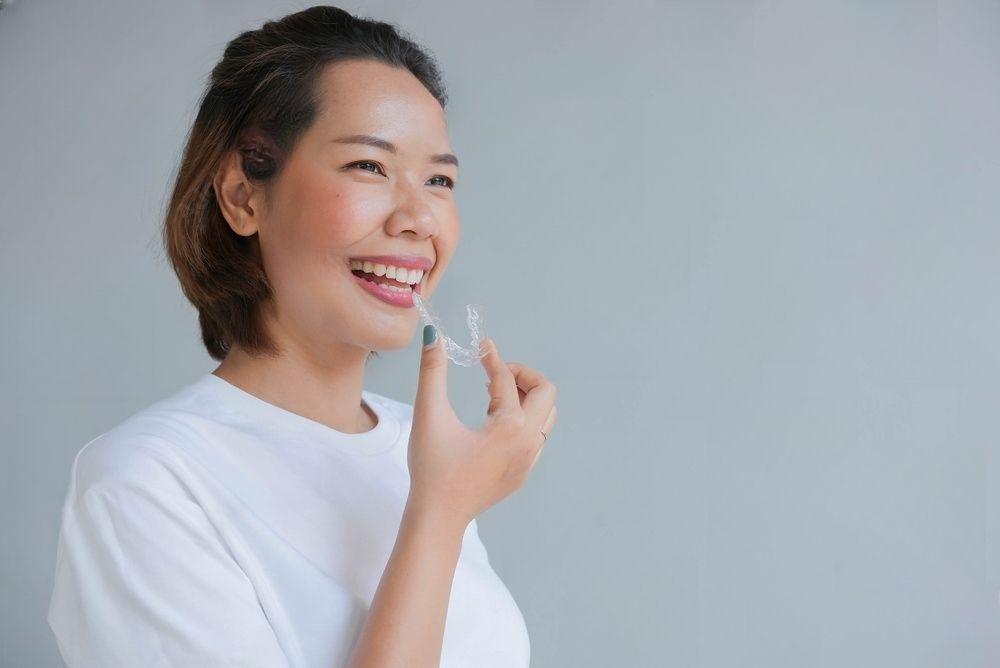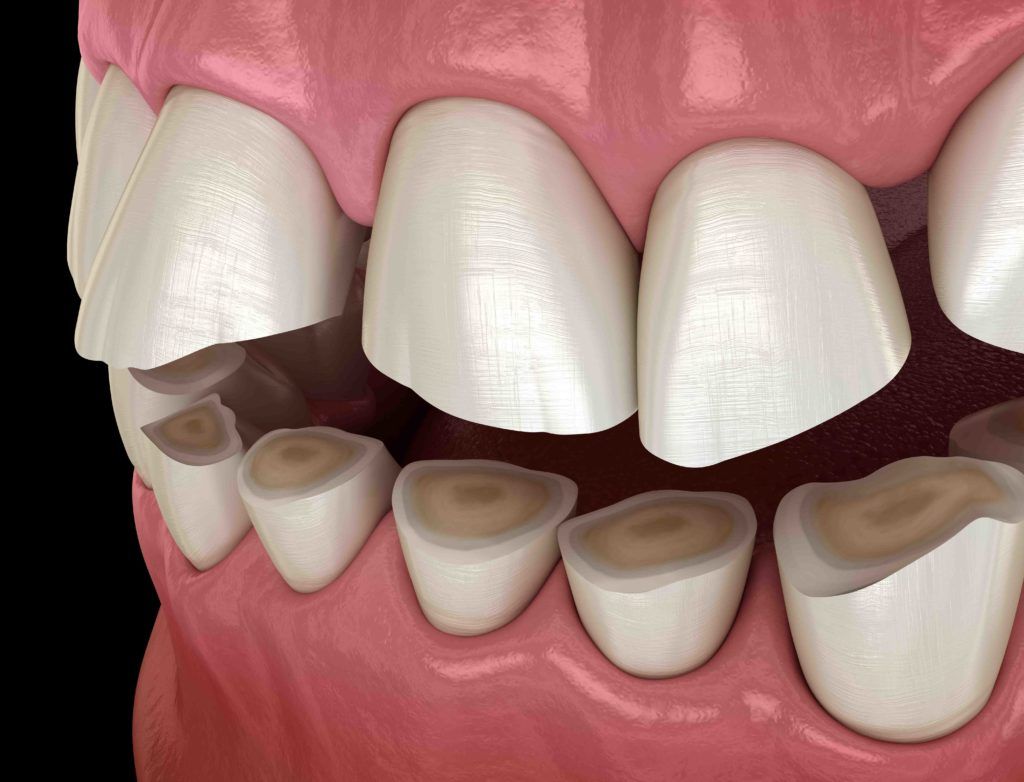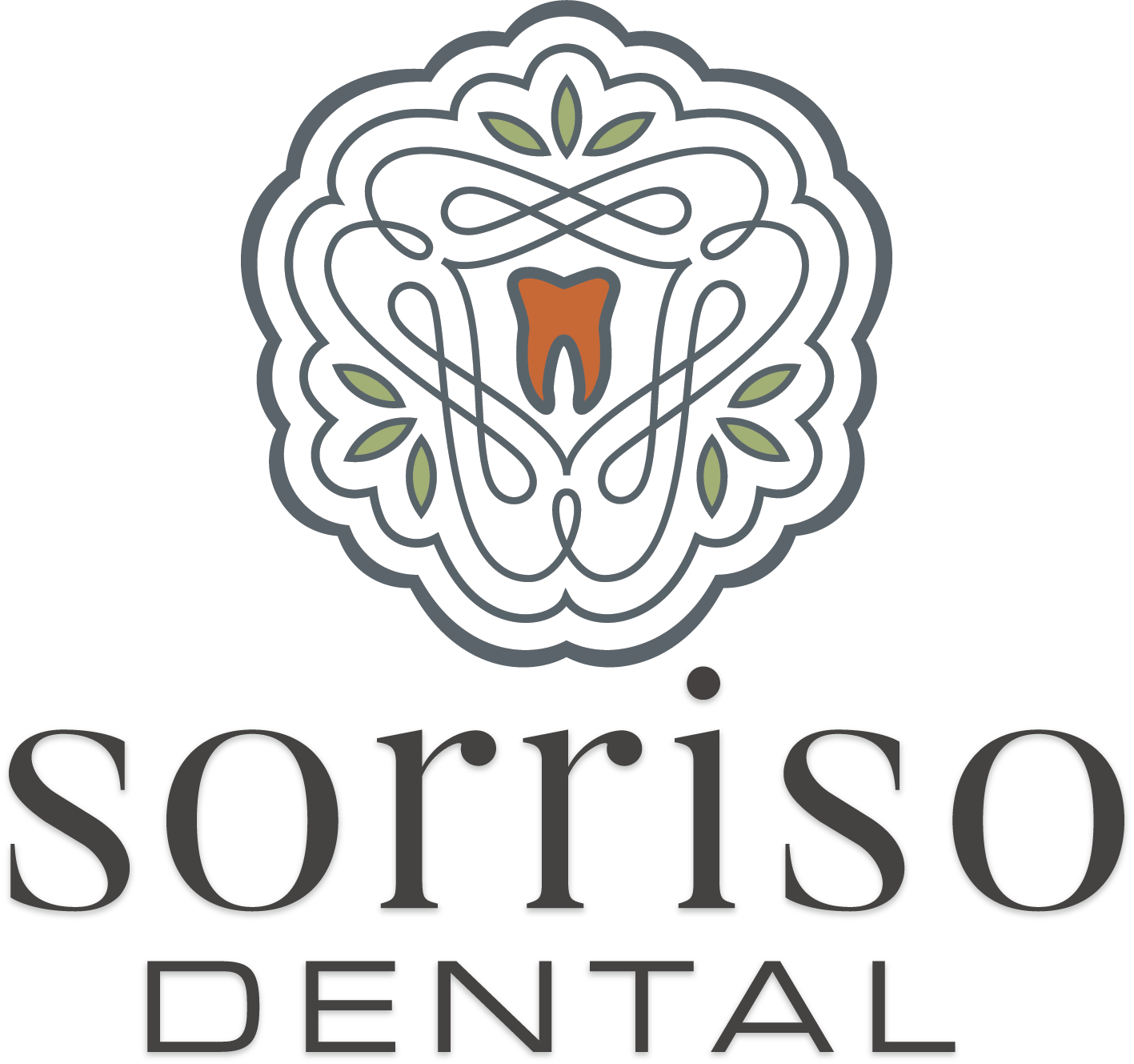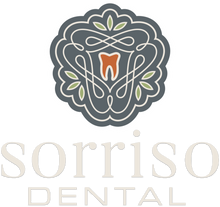Oral Appliances


Slide title
Write your caption hereButton
Oral Appliances
One of our goals at Sorriso Dental is to provide the most conservative treatment possible in every situation. Oral appliances offer simple, non-invasive treatment for a variety of conditions. Regardless of the application, every appliance we prescribe is custom-crafted just for you.
Whether we’re treating nighttime sleep grinding, a diagnosed case of obstructive sleep apnea, bite problems, or other jaw joint disorders, appliance therapy may be a valuable complement to your treatment. Dr. Labritz, top dentist in Morgantown WV and the Sorriso Dental team use a variety of innovative designs depending on treatment goals and your preferences.
Teeth Grinding
Teeth are the hardest substance in our bodies and can withstand a tremendous amount of force. But damage can occur, especially when grinding forces start to wear it away. A habit of nighttime clenching or grinding will harm teeth, muscles, and jaw joints.
Normal chewing results in brief intervals of contact between teeth. Under normal circumstances, your teeth should only contact for about 5 minutes each day. Slight amounts of wear over years of use is common, and bite edges can chip a little.
Sometimes teeth develop a flattened, worn appearance, even in young patients. X-rays may reveal unusually thin layers of enamel as if sandpaper has been drawn across the chewing surfaces of the teeth. A few minutes of chewing daily simply shouldn’t erode the enamel so much.
You Don’t Even Know
Some patients develop a subconscious habit of grinding their teeth, either during the day or night. In many cases, the abrasive action occurs only during sleep, and for only a few seconds at a time. If you wake up with a sore jaw or a morning headache, chances are you’re grinding your teeth during the night. In some patients, enlarged jaw muscles develop on the sides of the face from this nighttime grinding. These muscles are, ounce for ounce, the strongest in the body, which means they can do a lot of unnecessary damage.
The unusual activity not only wears down teeth and strains the overworked muscles. The compressive forces can also damage the intricate jaw joints on one or both sides. Damage to the joints may lead to arthritic changes, chronic pain, and popping or clicking. Once these changes settle in, reversing their condition may become impossible.
Avoiding Irreversible Damage
If you’re waking up with a sore jaw or headaches, or you’ve noticed chips or flattening of your teeth, a consult with Dr. Labritz and the Sorriso Dental team is recommended. The sooner the problem receives attention, the less damage there will be. Often a carefully calibrated night guard will eliminate the symptoms while protecting your precious enamel.
Daytime habits of clenching or grinding deserve attention too. Dr. Labritz and the Sorriso Dental team will analyze your bite and make sure they’re moving against each other properly when you chew. Regardless of the cause, eliminating the strain on the jaw and your teeth as quickly as possible can save you money and time spent in the dental chair.
Teeth are the hardest substance in our bodies and can withstand a tremendous amount of force. But damage can occur, especially when grinding forces start to wear it away. A habit of nighttime clenching or grinding will harm teeth, muscles, and jaw joints.
Normal chewing results in brief intervals of contact between teeth. Under normal circumstances, your teeth should only contact for about 5 minutes each day. Slight amounts of wear over years of use is common, and bite edges can chip a little.
Sometimes teeth develop a flattened, worn appearance, even in young patients. X-rays may reveal unusually thin layers of enamel as if sandpaper has been drawn across the chewing surfaces of the teeth. A few minutes of chewing daily simply shouldn’t erode the enamel so much.
You Don’t Even Know
Some patients develop a subconscious habit of grinding their teeth, either during the day or night. In many cases, the abrasive action occurs only during sleep, and for only a few seconds at a time. If you wake up with a sore jaw or a morning headache, chances are you’re grinding your teeth during the night. In some patients, enlarged jaw muscles develop on the sides of the face from this nighttime grinding. These muscles are, ounce for ounce, the strongest in the body, which means they can do a lot of unnecessary damage.
The unusual activity not only wears down teeth and strains the overworked muscles. The compressive forces can also damage the intricate jaw joints on one or both sides. Damage to the joints may lead to arthritic changes, chronic pain, and popping or clicking. Once these changes settle in, reversing their condition may become impossible.
Avoiding Irreversible Damage
If you’re waking up with a sore jaw or headaches, or you’ve noticed chips or flattening of your teeth, a consult with Dr. Labritz and the Sorriso Dental team is recommended. The sooner the problem receives attention, the less damage there will be. Often a carefully calibrated night guard will eliminate the symptoms while protecting your precious enamel.
Daytime habits of clenching or grinding deserve attention too. Dr. Labritz and the Sorriso Dental team will analyze your bite and make sure they’re moving against each other properly when you chew. Regardless of the cause, eliminating the strain on the jaw and your teeth as quickly as possible can save you money and time spent in the dental chair.

Slide title
Write your caption hereButton

